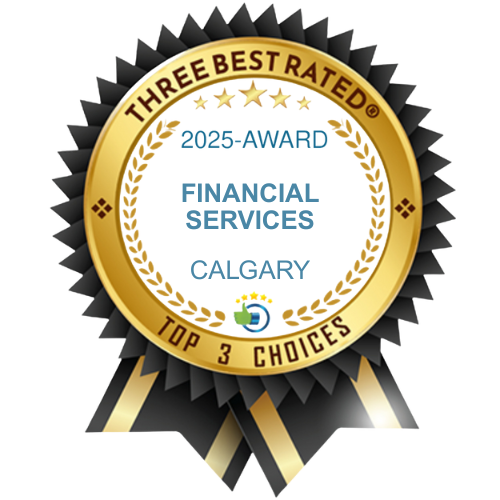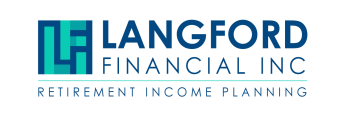What is the right type of financial advisor for you?
Most Canadians are leery of financial advisors. You want advice. You know you need some advice, but you don't want to be pitched on a bunch of investments or financial products that you do not fully understand.
Do you need an advisor?
If you are the type of person who is a "Do-it-your-self" person who enjoys figuring things out on your own and you are willing to put in the time and energy to do the research then you can likely figure out this stuff on your own. It would be wise to have an expert look over your plans and make sure you are not missing anything. In this case, an hourly rate advisor would be best. It's a small price to pay for peace of mind and it could save you $1000's. If you are not the least bit interested in this financial stuff and you prefer to be doing other things like golfing, earning money, volunteering, and spending time with your grandkids then you should hire a professional.
But, what is the right kind of professional for you?
Investment Advisor: This type of advisor is focused on selling investments and is good at growing your money. They don't like offering advice on other financial matters and don't want to see you unless you have more money to invest. They are best suited for the accumulation years, not the retirement years.
Financial Advisors with Specialties: Any wise financial advisor will find a niche. No one can be all things to all people.
There are a number of specialties within the industry:
Business owners. Young couples with a growing family. Professionals like doctors and lawyers. Retirement income planning. Insurance specialists. Estate planning and wealth transition. Farmers.
What stage of life are you in? Who would be best suited to meet your changing needs? You may need to change advisors throughout your life.
How are advisors compensated?
Fee-Based Advisors: This is the most common practice today. There are two parts to the fees you pay.
The average fee for the advice and planning they offer is 1%. For example, if you have $500,000 invested with your advisor, you have likely paid $5,000 per year to your advisor to have your investments professionally managed (the advisor doesn't get all of that, of course, he or she has to share it with their dealer).
The second part is the fee charged by the investment funds they offer. A mutual fund or segregated fund will have an expense fee of around 1 - 1.6%. If you are buying bond funds, stocks, private equity, or other types of investments, there are fees attached. No one can work for free.
Fee for Service Advisor: These advisors provide their planning and advice on either an hourly or a flat-fee basis. Because of this, the advice you get can be more unbiased. This model is rarer in Canada.
Let's imagine you are working with an advisor for 10 years. That could represent at least $150,000 of fees. You probably would not have a problem with that if your portfolio grew to $1.2 million in that time. But, what if it was still $500,000? How would you feel then? That's the problem.
When paying fees you have to ask yourself whether or not what you are paying represents good value. If not, you may need to make a change. Probably the worst part of investing is not knowing what you are paying in fees because many fees are hidden.
Knowing what you are paying in fees is important for 2 reasons:
1.) It helps you determine what kind of investments to place inside your portfolio, and
2.) It helps you determine if you are getting good value from your advisor
3 Options for managing your money:
1. Work with an advisor that provides real planning and investment management. You will pay on average about 1.5-2.5% in fees, but you should get better returns and comprehensive financial/retirement/tax planning.
2. Work with an advisor at your local bank. They may help you pick mutual funds from their bank's lineup, but offer little in the way of planning. You are paying about 1% extra for this service.
3. Do it yourself through your bank's online discount brokerage. You can buy the same mutual funds your bank offers for about 1% less than what you'd pay at the bank level.
It doesn't make any sense to have an advisor who doesn't do any planning with you. If this is your case, you need to get a new advisor or decide to do it yourself.
We offer 2 services. Flat-fee planning and advice, or our all-inclusive full-service planning model. It's your choice.
It is our practice to over-deliver on service, planning, and advice to ensure that our clients are receiving top value for the fees they are paying. That's why we provide comprehensive planning with regular reviews and educational resources such as this newsletter, seminars, and events. In addition to that, we provide numerous value-added services like:
- Retirement Transition Planning
- Tax Planning
- Retirement Planning
- Estate Planning
- Income Strategies
- Cash Flow Planning
- Asset Protection
- Clarity around values & goals
- Financial Advice at anytime
For us, it's not just about getting assets under management. Basically, everything we offer is for the purpose of getting your financial house in order and keeping it that way forever. A good advisor does far more than just give one-time investment advice or suggest a place to park your money and then never look at it, or you, again.
As with many other industries, not all Financial Planners/Advisors are created equal. Indeed, selecting the advisor that is right for you can be a quite stressful undertaking. Before you can trust that an advisor is a right fit for YOU, you need to feel that they are trustworthy and that they can support their claims of being able to make your money work for you.
At our first meeting with prospective clients, we start with values and goals conversations. We then review your current financial situation. From there we can determine if and how we can help you and layout the steps we need to take.
One of the best pieces of advice you can ever receive on being successful is to get advice from people who are already successful. Let's now apply this to our finances. If a person wants to get out of DEBT the last place they may want to go to is to a quickie loan store. Does this make sense to you?
If a person wants to be in the best possible physical shape, they hire a Personal Trainer. Just buying a gym membership will not get you fit. If someone wants to be the best Chef, they need to go to the best culinary school, not just buy a cookbook!
Choosing someone to help you achieve your financial goals and retire confidently is the same. You need to choose someone who will focus solely on your best interests, not upsell you products that you don't need, or worse -- products that could make your money disappear!
What to consider in choosing a Financial Professional:
- Have they personally succeeded at the things they are advising you on? (How have they succeeded?)
- Are they up-to-date on paying their income taxes?
- What are their debts? (If they are drowning in debt, are they qualified to advise you on yours?)
- Ask them if they have a Will and if they do ask when it was last updated. If they don't, just leave. A Will is the foundation of any sound Financial Plan.
- Where do they have their money invested? Are they invested in the same things they recommend to their clients?
- What kind of Advisor do you need? Options include building wealth, estate planning, retirement planning, generating income, and many others. Not all advisors can be all things to all people. They should have a team of trusted experts that they can recommend to you to ensure that the right people are assisting you.
- Do they really follow their own advice?
Now think about this: Is the person sitting across from you really qualified to give you sound and credible advice, or are they just a salesperson trying to sell you products? You are about to place your trust and money to a potential stranger. It's important that you do your due diligence and that the one you choose is worthy of your trust.
For further information, here's a new Advocis SURVEY which proves that people who have a Financial Advisor are much more financially successful than those that don't.
Next Steps:
It's important in retirement to have a trusted advisor that you can work with for many years to come. 55% of pre-retirees will change advisors when they transition to retirement because they realize they need specialized planning with a focus on income protection.
If you are in or close to retirement and would like to meet with us to put together a retirement income plan, book time in our calendar for a meeting time.
Common questions:
1. How long will my money last?
2. How much can I spend each year and still have confidence that I won't run out of money?
3. When should I take CPP and OAS?
4. Which of my assets should I spend first to create tax-efficient income?
5. How much should I be saving now so that I can generate the income I'll want in retirement?
We help our clients create sustainable, predictable cash flow from their portfolio in the most tax-efficient manner to ensure they retire with confidence and never have to worry about money.
Click here to learn more about our flat-fee and all-inclusive planning services for those 55+
Retirement Income, Investment & Tax Planning
Willis J Langford BA, MA, CFP
Nancy R Langford CRS







